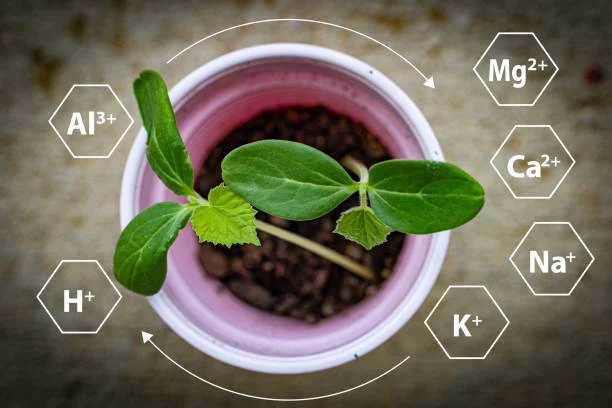Harness the Power of Nature’s Chemical Messengers for a Thriving Garden-plantify
Introduction: Understanding Plant Hormones and Their Importance
When it comes to successful home gardening, most people focus on soil quality, watering schedules, and sunlight exposure. While these are essential, there's another critical factor that often goes unnoticed—plant hormones .
Also known as phytohormones , plant hormones are naturally occurring chemical messengers that regulate growth, development, and responses to environmental stress. From seed germination to flowering and fruiting, plant hormones play a vital role in every stage of a plant’s life cycle.
In this blog post, we’ll explore the five major types of plant hormones, how they affect your garden, and how you can work with them—naturally—to boost plant health and productivity without resorting to synthetic chemicals.
1. Auxins: Encouraging Root Development and Directional Growth
Auxins are primarily responsible for cell elongation and root formation. Produced in the tips of stems, auxins help plants grow toward light (phototropism) and away from gravity (gravitropism).
For home gardeners, auxins are especially useful when propagating cuttings or encouraging strong root systems in seedlings. You can stimulate natural auxin production by ensuring proper light exposure and using organic rooting compounds derived from willow water or seaweed extracts.
👉 Learn more about natural propagation techniques at How to Start an Organic Backyard Garden
2. Gibberellins: Promoting Stem Elongation and Seed Germination
Gibberellins are key players in breaking seed dormancy and promoting stem elongation. These hormones help seeds sprout faster and encourage taller growth in plants.
If you’re starting seeds indoors, slightly warming the soil or soaking seeds overnight can activate gibberellin production and speed up germination. They also help in fruit setting and size improvement, which is especially beneficial for fruit-bearing plants like tomatoes and peppers.
3. Cytokinins: Stimulating Cell Division and Delaying Senescence
Cytokinins work hand-in-hand with auxins but focus on cell division and delaying the aging process in plants (senescence). Found in high concentrations in roots and developing fruits, cytokinins promote lateral bud growth and leaf expansion.
To harness their benefits, ensure your plants receive adequate potassium and nitrogen—nutrients that support cytokinin synthesis. You can also use compost tea or kelp-based fertilizers to enhance cytokinin activity naturally.
👉 Discover nutrient-rich composting ideas at A Greener Solution to Food Waste
4. Abscisic Acid (ABA): Managing Stress Responses
While many plant hormones promote growth, abscisic acid (ABA) acts as a protective mechanism during stress. When plants experience drought, cold, or disease, ABA helps close stomata to reduce water loss and triggers dormancy in seeds and buds.
As a gardener, understanding ABA can help you better manage water use and protect your garden during extreme weather conditions. Mulching, choosing drought-tolerant species, and improving soil structure all support ABA function naturally.
👉 For smart irrigation solutions, visit Smart Irrigation: How to Slash Garden Water Use Without Sacrificing Plant Health
5. Ethylene: Regulating Ripening and Leaf Drop
Ethylene is a gaseous hormone best known for its role in fruit ripening and leaf senescence. It influences processes such as flower opening, abscission (leaf drop), and even plant death.
Home gardeners can use ethylene to their advantage by harvesting fruits slightly underripe and allowing them to ripen indoors. However, be cautious—too much ethylene can cause premature leaf drop or overripening, especially in enclosed spaces.
How to Support Natural Hormone Production in Your Garden
While commercial products containing synthetic hormones exist, you can effectively support your plants’ hormonal needs through natural means:
- Use Organic Fertilizers : Compost, manure, and seaweed extracts provide balanced nutrients that support endogenous hormone production.
- Encourage Healthy Soil Life : Beneficial microbes in the soil help synthesize and regulate plant hormones.
- Avoid Overuse of Pesticides : Synthetic chemicals can disrupt natural hormonal balances in plants.
- Provide Balanced Light and Water : Consistent environmental conditions help maintain healthy hormone signaling.
Conclusion: Work With Nature, Not Against It
Understanding plant hormones empowers you to make informed decisions in your home garden. By working with these natural chemical signals, you can encourage healthier growth, increase yields, and reduce reliance on artificial inputs.
Whether you're growing vegetables in small pots or cultivating a lush indoor jungle, paying attention to the hidden world of plant hormones can transform your gardening results.
So next time you see a vine reaching for the sun or a cutting sprouting new roots, remember—you're witnessing the invisible yet powerful influence of plant hormones at work.






